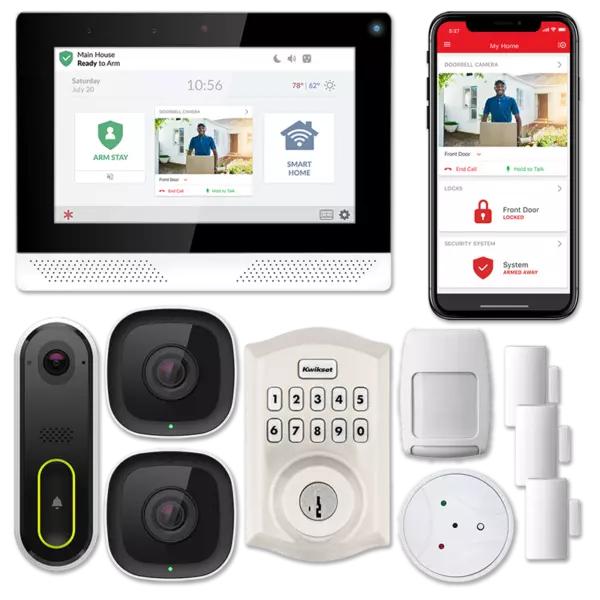Tips for Putting Up and Preserving Your Home Protection System Effectively
In today's world, guaranteeing the security of your home is vital, and successfully mounting and preserving a protection system is an essential facet of this undertaking. It starts with a detailed analysis of your certain requirements and the selection of appropriate equipment customized to your setting. The setup process is simply the beginning; ongoing upkeep is necessary to make sure optimal efficiency. Comprehending the nuances of these techniques can dramatically improve your system's reliability, yet there are usual risks that many forget. Checking out these can make all the difference in guarding your home.

Picking the Right Equipment
Choosing the proper tools for your home safety and security system is critical for ensuring detailed defense. The initial step in this process involves evaluating your special safety demands. Consider elements such as the size of your home, the number of entrance factors, and the visibility of possible susceptabilities.
Next, assess the various kinds of safety equipment available. Usual elements include surveillance electronic cameras, movement detectors, door and window sensing units, and alarm system systems.
Also, take into consideration the combination capabilities of the tools. Modern safety systems typically permit clever home combination, enabling remote accessibility and control through smartphones or tablet computers. This feature can boost benefit and responsiveness in emergency circumstances.
Proper Installment Techniques
Correct installation strategies are vital to take full advantage of the effectiveness of your home safety system. Begin by carefully choosing the locations for cams and sensing units; high-traffic areas, entrance factors, and blind spots must be prioritized. Make sure that electronic cameras are mounted at an optimum elevation, usually in between 8 to ten feet, to catch clear photos while minimizing the danger of meddling.
When mounting windows and door sensors, stick to the manufacturer's guidelines for positioning. Sensing units should be positioned at an elevation that permits for proper positioning and activation. In addition, consider utilizing wired links for fixed devices to improve dependability and lower susceptability to signal interference.
For wireless systems, make sure that all parts are within series of the central hub to maintain a steady connection. Conduct complete screening after installment to validate that all tools are operating appropriately which alerts are being received in real-time.
Routine Maintenance Practices
While setting up a home safety system is vital, normal upkeep techniques are just as vital to guarantee its ongoing efficiency. Once every 3 months, regular checks of your system need to be arranged at least. This includes testing all parts, such as cameras, activity detectors, and alarm systems, to confirm they are functioning correctly.
In addition, it is important to cleanse your safety cams and sensors, as dust site here and particles can block efficiency. Ensure that electronic camera lenses are unhampered and clear, and that movement sensing units are without blockages that can prevent their capacity to discover movement.
In addition, evaluate the wiring and connections for any signs of wear or damage - security cameras tampa. Replacing batteries in additional resources cordless devices need to likewise be a top priority, as diminished batteries can result in system failures
Surveillance and Alerts
Effective tracking and prompt informs are crucial components of any kind of home safety system. They work as the very first line of protection against possible dangers, ensuring that home owners continue to be ready and informed to respond to emergency situations. An extensive monitoring option normally includes both professional surveillance services and self-monitoring choices, enabling flexibility based upon specific choices and needs.

Additionally, it is important to customize alert setups to reduce Extra resources duds and guarantee that notifications are workable and relevant. Routine screening of the tracking system aids validate its dependability, and incorporating automation attributes can improve responsiveness, such as instantly securing doors upon receiving an alert. By prioritizing effective monitoring and signals, home owners can substantially improve their safety and security posture, offering peace of mind in their living setting.
Troubleshooting Common Issues
When it concerns home security systems, fixing common issues is essential for keeping ideal efficiency and guaranteeing security. Normal maintenance and fast resolution of troubles can avoid vulnerabilities in your safety setup.
One common concern is duds, usually triggered by low batteries in sensing units or inappropriate sensor placement. Check the battery degrees frequently and reposition sensing units if essential. Additionally, ensure that the system's setups are adjusted to lessen false triggers from animals or ecological variables.
Connection troubles can likewise interrupt your protection system. Confirm that your Wi-Fi signal is strong and that all gadgets are effectively connected. If you experience issues, consider resetting your router or moving the safety and security hub closer to the impacted devices.
One more usual issue is failure to receive informs. Make certain that your notification settings are appropriately set up which your smart phone has a trustworthy connection. Frequently updating your safety system's software can likewise enhance and solve insects performance.
Final Thought
In verdict, the efficient setup and upkeep of a home safety system hinge upon cautious tools choice, strategic placement, and regular upkeep. Furthermore, proactive tracking and resolving typical issues improve the total dependability of the safety and security system.
